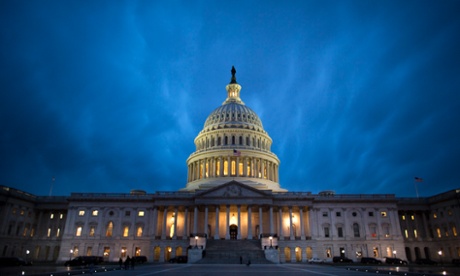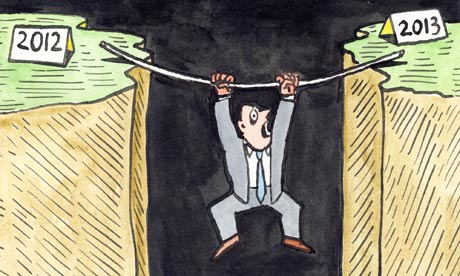Recently I became confused about my age. For some reason I came to believe that I was 46 years old, instead of 45. The error was pointed out to me, and once I’d got over the embarrassment of forgetting my own age (not the kind of mistake I’d make at 19 or 27 or even 36), I had a brief moment of elation. In some way, hadn’t I gained an extra year, a whole 12 months of time that I’d mislaid? What could I do with my precious 46th year? Take up the violin, train for a marathon, learn carpentry or juggling or Spanish?
What I really wanted to do was read.
I’ve been a compulsive reader for as long as I can remember. For the best part of my childhood I visited the local library three or four times a week, hunching in the stacks on a foam rubber stool and devouring children’s fiction, classics, salacious thrillers, horror and sci-fi, books about cinema and origami and natural history, to the point where my parents encouraged me to read a little less. I loved television and movies, too, but the solitary act of reading was always my greatest pleasure. Books were an obsession – an education, an escape and inspiration.
So why, as an adult, was I reading so little, less than even 10 years ago? Of course the multiple distractions of modern life, the increasing demands of work and a new family all played a part, along with the bleeps and trills of technology, the constant tap on the shoulder that comes from texts, emails, mobile phones, because God forbid that I should call someone back or reply to an email a whole hour later.
If reading is simply the act of consuming text, then in fact I was probably reading more than ever, but for the most part it was nonsense, jabber and jargon. Like most people who work in front of a screen, I’d developed a terrible internet tick, cycling endlessly around the same websites, reading the same urgent “breaking news” 10 times a day, peering pointlessly at film premiere reports, gossip and Twitter feuds, movie trailers, updating iTunes and Adobe Acrobat for the 25th time, habits that devoured hours of my day, the hours that presumably I once gave to reading books.
I was still buying books, far more than I could ever possibly read, but buying them is not the same as reading them, or loving them. All they did was furnish the room. The piles got higher, the irritation and guilt and regret increased. Reading was like sunbathing – something that I only did for two weeks in August.
About a year ago I decided to do something about all this. Along with the usual vows about exercise and fresh vegetables, caffeine and alcohol, I resolved to set my alarm one half-hour earlier, to sit up straight and read again. Unusually for a resolution, I’m pleased to say that I have stuck to that routine, and now those first 30 minutes of solitary reading are all too often the best part of my day.
I’ve read missing classics and new authors. I’ve finally devoured those writers who’ve been repeatedly recommended to me – Patrick Leigh Fermor, Alice Munro, Elizabeth Taylor, Marilynne Robinson – and, yes, they are wonderful. I’ve managed to reread some of Cheever’s brilliant short stories, and rediscovered writers who’ve unaccountably fallen off the literary map, like the great US writer John Williams or the neglected H E Bates. It’s not just fiction, either – there’s the brilliant journalism of John Jeremiah Sullivan, contrasting histories of cinema by David Thomson and Mark Cousins. Robert Macfarlane’s fascinating mix of geology, mythology and natural history. The unread pile still teeters precariously, but at least I’ve made a start.
Of course, there have been lapses along the way. I’ve slipped back into sleep more than once during The Portrait of a Lady, and there have been one or two hangover-induced lie-ins. Getting up earlier means going to sleep earlier, which isn’t always much fun. And I’ve yet to conquer my shaming addiction to electronics. I still find it absurdly difficult to concentrate on a novel if there’s a phone or computer to hand; I have taken to locking them outside the room like noisy pets. Thirty minutes is also a fairly puny amount of time. I’ve tried to turn off the TV and extend the hours into the evening, but reading a book – even a great book – after 9pm has the same effect on me as a chloroformed handkerchief. Mornings remain the best time, especially in spring or summer when the house is quiet, reading as the sun comes up.
“Just half an hour a day can change your life.” It’s the sort of dubious claim you find in the back of a magazine, and I’m aware of a zealot’s shrillness in all of this. I know that for every reader who has lost the habit or can’t find the time, there are people who’ve never enjoyed reading and question the value of literature, either as entertainment or education, or believe that a love of books, and of fiction in particular, is sentimental or frivolous. Given an extra half-hour a day, I know that some people would much prefer to be jogging or bantering on social networks or simply sleeping some more. “No one reaches the end of their life and wishes they’d spent more time on Twitter” is a claim I’ve heard before, but perhaps that won’t always be the case.
But to allow the zealot his voice again, think of what you might be missing by not finding the time to read. Allowing for a steady pace of a page a minute, you could easily take in a short story by Chekhov or Raymond Carver or Richard Yates every morning of next week.
An Alice Munro might take two days, but it will be worth it. The Great Gatsby could be read in four mornings or, if that’s too obvious, there is always Tender is the Night, a much better book I think. Other novellas – there’s The Good Soldier or The End of the Affair or Franny and Zooey or Goodbye, Columbus. Or something more recent – Denis Johnson’s Train Dreams, a small masterpiece and the best book I read last year. Or something lighter; have you ever read Ian Fleming? Casino Royale ’s a terrifically invigorating book to read before breakfast. Or why not start something more ambitious: Anna Karenina or Bleak House or Les Misèrables might last you into March, but Great Expectations or Persuasion or Madame Bovary will take half that time.
And then there are the Man Booker nominations, and the fine new work that’s coming out of independent presses, and the book of that film you saw, and travel writing before you go away, and poetry and, come to think of it, isn’t now the perfect time to read a really good biography of Napoleon?









